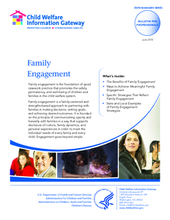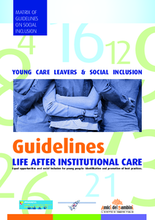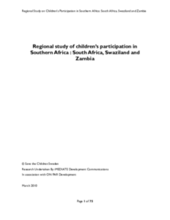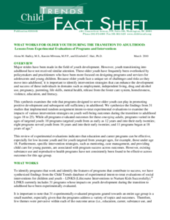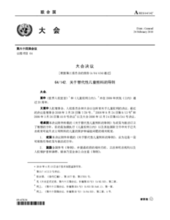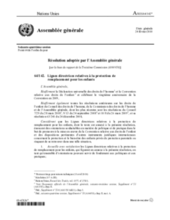Displaying 281 - 290 of 377
The purpose of this paper is to give meaning and insight into some of the key drug and alcohol issues that affect children from the perspectives of the children themselves. Research shows that large numbers of children who are separated from their parents are particularly vulnerable to developing drug and alcohol problems. Special attention is paid throughout the report on children looked after by relatives, foster carers, and institutions.
This compilation provides policymakers, programme managers, non-governmental organizations and others interested in implementing family skills training programmes with a review of existing evidence-based family skills training programmes. Its purpose is to provide details of the content of such programmes, the groups targeted, the materials used and the training implemented, in order to assist users in selecting the programme best suited to their needs and to offer guidance as to the kind of programmes available.
This child friendly report was produced to provide feedback to children who took part in the consultations for for developing EveryChild's conceptual framework -Every child deserves a family. Aimed at children 11 years and older, it can be used to initiate discussions about a loss of parental care and care and protection issues for youth.
This paper is based on The Latin American Report: The situation of children in Latin America without parental care or at risk of losing it. Contexts, causes and responses, which was prepared using reports from 13 countries in the region. The paper gives an overview of the state of one of the most fundamental rights - the right to parental care, a keystone for the right to live in a family and a community.
Family engagement is the foundation of good casework practice that promotes the safety, permanency, and well-being of children and families in the US child welfare system. This brief offers information to help State child welfare managers improve family engagement across program areas.
In response to the increased social exclusion affecting youth leaving care, Amici de Bambini developed Matrix of Guidelines for Life after Institutional Care, which can be used to increase the likelihood of social inclusion for young people who have been released from the child protection system.
This report presents the findings of a regional study on children’s participation in Southern Africa.
A new Child Trends fact sheet examines the role that programs for older youth can play in promoting positive development and subsequent self-sufficiency in adulthood.
The Guidelines for the Alternative Care of Children were endorsed by the United Nations General Assembly on 20th November 2009, in connection with the 20th anniversary of the UN Convention on the Rights of the Child.
Les lignes directrices pour la prise en charge alternative des enfants ont été endorsées par l'Assemblée Générale des Nations Unies, dans le sillage de la commémoration du 20e anniversaire de la Convention des Nations Unies relative aux droits de l’enfant.




